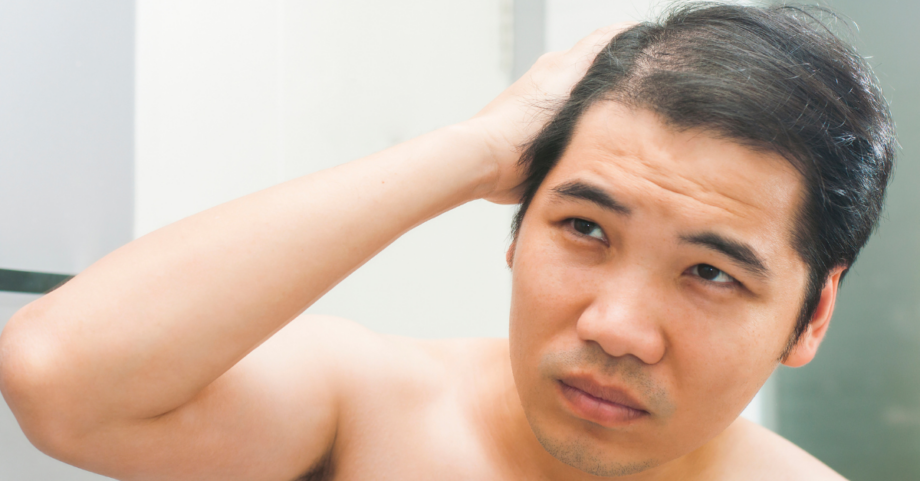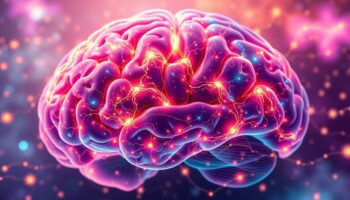Many bizarre masturbation myths exist, leading to the spread of misinformation surrounding self-pleasure. One myth that stands out is the idea that masturbating can cause hair loss. To cut to the chase, this is just not true. There’s no scientific evidence to back this claim.
So, how did this ridiculous myth get started, and what actually causes hair loss? Let's dig in.
What causes hair loss?
Playing with yourself won’t lead to hair loss. But a few things could cause you to lose your precious locks.
Genetics
Genetics can play a significant role in the development of androgenetic alopecia—a common type of hair loss that both people assigned female at birth (AFAB) and people assigned male at birth (AMAB) experience.
“A person's predisposition to hair loss in androgenetic alopecia is largely determined by genetics,” says T.N. Rekha Singh, MBBS, MD, a dermatologist and trichologist at Oliva Skin and Hair Clinic.
“Both parents may have this hereditary type of hair loss. Hair follicles gradually contract due to genetic sensitivity to the hormone dihydrotestosterone (DHT), resulting in thinner and shorter hair strands. Hair follicles may eventually cease to produce new hair entirely as the hair development cycle shortens.”
Hormones
Masturbation might increase testosterone levels, which begs the question, “Does masturbation increase DHT levels as well?” Since this hormone can play a role in hair loss, this could explain the assumption that there's a link between masturbation and hair loss.
“[Shrunken hair follicles] results from DHT binding to androgen receptors in hair follicles in people prone to androgenetic alopecia,” Singh says. “Thicker, weaker hair is the outcome of this process, which shortens the anagen (growth) phase of the hair cycle. The affected hair follicles start producing progressively finer hairs and eventually stop producing hair altogether.”
However, research suggests that masturbation doesn't impact DHT levels.
Lifestyle habits
According to Singh, your lifestyle habits could increase your risk of experiencing hair loss.
“Inadequate hair care, smoking, stress, and poor food can all cause hair loss,” she says. “Weakness in hair can result from nutritional inadequacies, including insufficient iron, minerals, and protein.”
Debunking the Myth: Why masturbation doesn’t cause hair loss
Can masturbation cause hair loss? Absolutely not.
But there’s a reason why the myth about masturbation causing hair loss is believed by many — the link between semen and protein loss.
Every time you ejaculate, you release about 1.5 to 5 milliliters (ml) of semen. According to a 2013 analysis of current research, semen contains 5,040 milligrams (mg) per 100 (ml) of protein.
So, technically, men and people with penises are losing a little protein every time they cum. Somehow, this fact was spun into the belief that the protein lost from ejaculation meant the body didn't have enough protein for hair growth. Hence the myth that masturbation can cause hair loss. Though this sounds... kind of logical, it's completely false.
“Protein levels in the body are not greatly affected by the small amount of protein lost during ejaculation,” Singh says. “The human body needs proteins for various functions, including hair growth, and it constantly makes and recycles them.”
While masturbation hair loss is not real, there is one possible side effect of masturbation that might make you shed your tresses: sexual shame.
A 2023 study states that sexual shame may cause feelings of disgust or humiliation toward your own identity as a sexual being. Sexual shame comprises three factors: internalized shame, relationship sexual shame, and sexual inferiority.
If you experience sexual shame, it can have an impact on your mental well-being, potentially leading to stress and anxiety, which isn’t good for your hair. Telogen effluvium, a common type of temporary hair loss, can develop after experiencing severe stress or changes to your body.
If you believe you have telogen effluvium, androgenetic alopecia, or another type of hair loss, please speak with a healthcare provider. And please know, it has nothing to do with your masturbation habits
The benefits of masturbation for overall well-being
Masturbation can get a bad rep, leading to many myths about how bad it is for you. Yet, jacking off has several benefits for your overall health and well-being other than just a good nut.
Here are a few benefits of indulging in solo sex:
Reduces anxiety and depression
Masturbating can help you feel better when you’re anxious or depressed, which can also be beneficial for your hair health.
“[Neurotransmitters like] endorphins, dopamine, and oxytocin are released when experiencing an orgasm, contributing to a sense of happiness and health,” Singh says. “These compounds help enhance mood by decreasing feelings of anxiety and depression. Neurotransmitters associated with pleasure and calmness are produced while masturbating, leading to an elevated mood.”
Improves sex life
While this might seem pretty obvious, playing with yourself can be beneficial to your sexual well-being.
“Masturbation helps individuals learn about their sexual preferences and improves sexual function, potentially enhancing partner relationships,” Singh says.
Reduces risk of prostate cancer
Masturbation can lower the risk of prostate cancer, the most common cancer type among men and people assigned male at birth.
“Some studies suggest that regular ejaculation may reduce the risk of prostate cancer by clearing out toxins and reducing inflammation,” Singh says.
Provides pain relief
According to Singh, busting a nut can release endorphins, which can help relieve pain from menstrual cramps and headaches.
Singh adds that masturbation can also improve your sleep as well as enhance your self-perception and body image. Nice bonuses, right?
The Bottom Line
So, does ejaculating make you lose protein, thus contributing to hair loss? Nope, not all. In fact, masturbation is a completely normal and healthy aspect of your life that you should indulge in guilt-free.
However, if you suspect you’re experiencing hair loss, like androgenetic alopecia and telogen effluvium, please consult your healthcare provider for professional medical advice.
If you still have concerns that your hair will fall out while playing with your favorite toy, remember that the connection between masturbation and hair loss is non-existent, and self-pleasure should be seen as a positive part of your sexual well-being.




